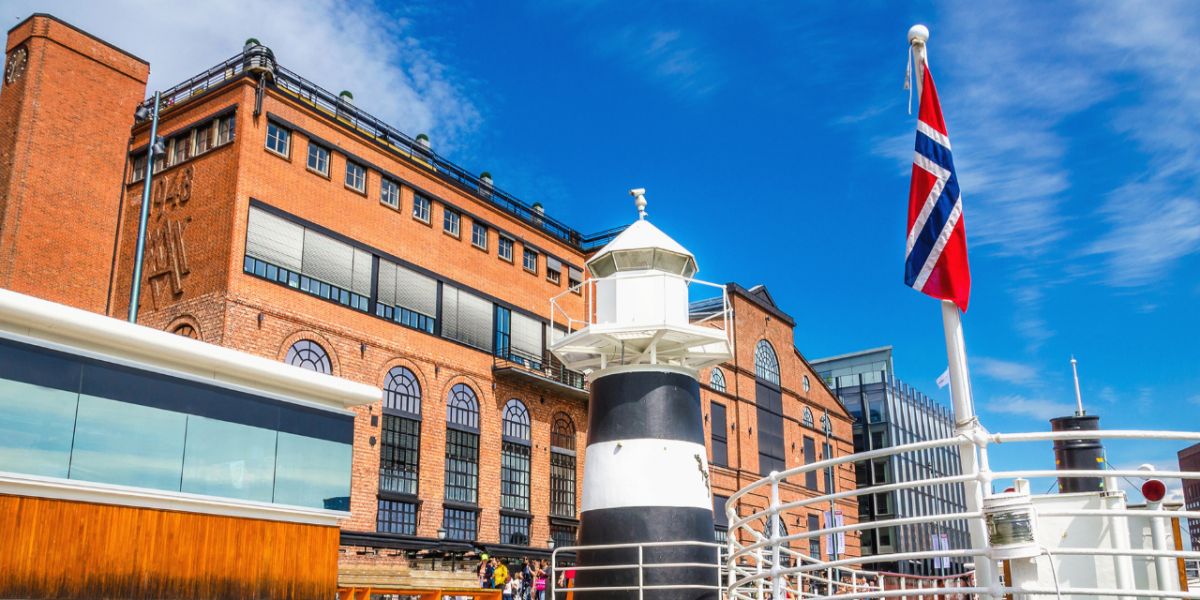
Norway, consistently ranked as one of the happiest countries in the world, is a top destination for those seeking a high quality of life and professional opportunities. While finding a job there can be challenging—local candidates often have an edge—opportunities exist for expats. Here's a comprehensive guide to help you land a job and thrive professionally in Norway.
Why work in Norway?
Choosing to work in Norway is a smart decision for many reasons. The country boasts economic stability, a robust social welfare system, high quality of life, and a remarkable work-life balance. Coupled with breathtaking landscapes and a strong commitment to human rights and environmental sustainability, Norway is a dream destination for expats. Working in Norway also means an inclusive and egalitarian workplace culture, where gender equality, diversity, and inclusion are deeply valued.
Moreover, Norway's labor market is dynamic, with strong demand in sectors like engineering, technology, healthcare, and renewable energy. Skilled labor is also needed in traditional industries such as fishing, agriculture, and oil and gas extraction.
Challenges for expats in the Norwegian job market
Despite Norway's many advantages, finding a job as a foreigner comes with hurdles. Concerns about long-term commitment or cultural fit into the workplace often make Norwegian employers hesitant to hire foreign workers. Language barriers can additionally make the process more difficult. While many Norwegians speak English, proficiency in Norwegian is often necessary for permanent roles and career advancement.
Local competition
Competition for jobs in Norway is intense, with employers typically favoring local candidates or those proficient in Norwegian. Foreign applicants must stand out by showcasing unique skills, international experience, a commitment to learning the language, and a proactive approach to cultural integration.
Building a network and references
Networking plays an even more critical role in job hunting in Norway than in many other countries. Many positions are filled through referrals and personal connections rather than online ad postings. Expats should actively build local networks by attending professional events and conferences, joining local associations, and connecting with colleagues and industry professionals.
Where to search for jobs in Norway?
Finding a job in Norway typically begins online, but many other valuable resources are worth exploring.
Online job boards
- NAV: The official website of the Norwegian Labor and Welfare Administration, NAV, is the primary resource for job listings in Norway. While most postings are in Norwegian, you can search for English-language positions using the keyword "English."
- Work in Norway: A comprehensive platform offering a database for employer/employee searches and practical information.
- Finn.no: One of Norway's largest classified ads websites with job opportunities across various industries.
- Recruitment agencies: Well-established agencies in Norway, like Manpower, Experis, and Adecco, specialize in connecting expats with positions suited to their skills, particularly in technology, engineering, and finance.
Traditional media and professional networks
Be sure to explore traditional Norwegian media as well, as many Norwegian newspapers regularly publish job listings.
- Norwegian newspapers: Major newspapers like Aftenposten regularly advertize job openings, often for high-level or specialized roles.
- Trade unions are key players in Norway: The Norwegian Confederation of Trade Unions (LO) provides valuable sector-specific guidance and resources and helps navigate the job market. While unions don't search for jobs on your behalf, they provide support once you've initiated the process.
If you don't speak Norwegian, consider using your browser's auto-translate feature when browsing job postings on Google.
The European Mobility Portal provides comprehensive information for job seekers across Europe, including Norway.
Internships in Norway
Internships are common in Norway and often serve as an excellent entry point into a company, particularly for internal promotion. Although Norway isn't part of the EU, internships can still be secured through platforms like Erasmus. Additionally, Karriere Start offers a comprehensive list of internships by sector, city, or field of expertise.
Use terms like sommerjobb (summer job), internship, or praksisplass (work placement) when searching for internships. These work trial periods are typically paid, though the compensation may be lower than a regular salary.
How to apply for a job in Norway?
Crafting a CV and cover letter
A Norwegian CV should be clear, concise, and structured, ideally fitting on one A4 page (maximum 2 pages). Including a photo is optional but can help employers remember you. Highlight your most relevant skills and experiences for the targeted role. NTNU (Norwegian University of Science and Technology) offers a useful CV template on its website. Essential CV components include:
- Personal details;
- Key qualifications;
- Work experience;
- Education;
- Additional relevant experiences (certifications, training, volunteer work, etc.);
- References.
If the job posting is in Norwegian, the CV should also be in Norwegian. For English-language postings, an English CV is more appropriate. In some highly international sectors, such as technology, oil, and gas, where English is the primary working language, an English CV may be preferred.
Good to know:
Traditional and electronic CVs follow different formats. If your CV is in a standard A4 paper format, keep in mind that it may be scanned, so make sure it remains clear and easy to read.
Most employers expect a cover letter alongside your CV. It should be tailored to the company and demonstrate your understanding of its industry. If you are not yet fluent in Norwegian, highlight your willingness to learn the language.
Spontaneous applications
Not all job opportunities in Norway are advertised. Proactively sending tailored, spontaneous applications to companies that align with your skills and interests is well regarded and can yield results, especially during times of company growth or project launches. A well-crafted application—including a complete CV, essential references (highly important!), and diplomas—can create valuable opportunities. Be sure to clearly express your enthusiasm and motivation for the company.
Networking
Building a strong network is crucial for a thriving career in Norway. Attend professional events, conferences, and job fairs—platforms like the NTNU university website and TradeFairDates can help you find relevant opportunities. Engage with specialized LinkedIn groups and local industry associations to expand your connections. Personal and professional relationships often play a key role in securing job opportunities in Norway.
How to prepare for a job interview in Norway?
The interview culture
Norwegian interviews are typically straightforward and professional, focusing on your qualifications, experience, motivation, and long-term commitment plans to the company. Be prepared to provide clear, concise answers to questions about your professional career and to showcase your cultural adaptability and willingness to learn Norwegian.
Dress code
Norway's professional dress code is generally relaxed and centered on comfort. In creative and tech industries, casual attire like jeans and t-shirts is widely accepted. However, in more formal sectors such as finance and law, business attire—such as suits or tailored outfits—is expected. Layering is also common, as it accommodates Norway's changing weather conditions. Overall, the focus is on practicality, reflecting the Norwegian cultural values of equality, functionality, and simplicity.
Frequently asked questions
Interview questions in Norway typically focus on your past experience, technical skills, and ability to work in a team. It's also common to discuss your personal values and how they align with the company's culture. You might be asked what motivates you to apply for the position and how you plan to contribute positively to the company's efforts.
Logistical preparation
Ensure you arrive on time for your interview as punctuality is crucial in Norway. Dress professionally but with modesty, keeping in mind that Norwegian workplaces are generally casual yet respectful.
Where to find help settling and working in Norway?
Public services
The NAV website is not only a job portal but also a valuable resource for information on labor rights, social benefits, and living conditions in Norway. They also provide helpful advice for expatriates on the necessary administrative procedures for settling in the country.
Altinn, Norway's official government site, offers practical guidance for expatriates looking to start their own business.
Expat organizations and communities
Norway is home to many expat organizations and communities that provide support and advice. Expat-focused groups and forums in Norway are excellent sources of practical information and local connections.
International mobility consultants
If you need assistance navigating the complexities of expatriation—such as visas, work permits, or tax matters—consulting with international mobility specialists may be beneficial. These experts can ease your relocation and help you avoid common pitfalls.
Living and working in Norway: what to expect?
Work culture: atmosphere, hierarchy, and working hours
The Norwegian work environment is both relaxed and efficient, with a strong emphasis on equality, transparency, and collaboration. Hierarchies within Norwegian companies are generally flat, encouraging employees at all levels to share ideas and contribute actively to projects.
Working hours are flexible, without a rigid "8 hours a day, 5 days a week" structure. Many employees work in teams, including on weekends, so work schedules can vary. However, legal limits ensure work-life balance: employees cannot work more than 9 hours within a 24-hour period or 40 hours in a 7-day week. For those working shifts, nights, or Sundays, the weekly limit is 38 or 36 hours. Additional hours can be negotiated, but only for a limited time, helping prevent burnout while maintaining business flexibility.
Overtime is possible, but employees typically ensure it doesn't interfere with family life and remain punctual (during peak periods) through remote work and flexible hours.
Work-life balance
One of the greatest benefits of working in Norway is the emphasis on work-life balance. Employees are entitled to 25 days of annual vacation, and Norwegian legislation guarantees flexible working conditions. Many adjust their schedules to accommodate family needs, whether through part-time arrangements or remote work. This flexibility enables employees to manage their time effectively and maintain a healthy balance between professional and personal commitments.
Parental leave and the Norwegian workforce
Norway offers some of the world's most generous parental leave, providing parents with significant flexibility and fostering a healthy work-life balance. After the birth of a child, parents are entitled to 49 weeks of fully paid leave or 59 weeks at 80% of their salary, with a designated portion reserved for each parent. Notably, 49 weeks is nearly a full year! Additionally, fathers receive a minimum “father's quota” of 15 weeks, reinforcing gender equality. This policy not only benefits families but also supports a more balanced and inclusive work culture.
Salaries and cost of living
Salaries in Norway are among the highest globally but come with a high cost of living. According to the Norwegian Central Bureau of Statistics, Norwegian salary ranges by sector, reflecting income before bonuses or other benefits and before taxes. Depending on your tax rate, which typically ranges from 15% to 25% of your gross salary, your net income may vary. (Note that taxes are usually slightly higher in the first year before being adjusted later.)
Here is a list of average gross monthly salaries by profession:
- Chief financial officer (CFO): 100,000 NOK;
- Restaurant owner: 49,000 NOK;
- General practitioner (GP): 88,000 NOK;
- Nurse: 60,000 NOK;
- Dentist: 78,000 NOK;
- Teacher: 63,000 NOK;
- Web developer: 63,000 NOK;
- Lawyer: 85,000 NOK;
- Real estate agent: 76,000 NOK;
- Hotel receptionist: 45,000 NOK;
- Cook: 40,000 NOK;
- Hairdresser: 37,000 NOK;
- Retail salesperson: 40,000 NOK;
- Gardener: 38,000 NOK;
- Carpenter/joiner: 43,000 NOK.
Expenses for housing, food, and services are considerably higher in Norway than in many other European countries. Renting a 50 m² apartment in Oslo typically costs between 15,000 and 25,000 NOK per month. Grocery expenses vary based on consumption, ranging from 5,000 to 9,000 NOK per month, while a public transport pass in Oslo costs around 800 NOK per month.
However, Norway's robust social welfare system helps mitigate these high living costs by providing healthcare, education, and other essential services.
Norway does not have a national minimum wage. Instead, many industries set minimum salaries through collective agreements often negotiated by trade unions, ensuring fair wages and worker protection.
Starting a business in Norway
Can't find your dream job in Norway? Why not create it yourself? Norway sees 60,000 new businesses registered annually and boasts a thriving economy. Explore Altinn, the government's all-in-one platform for starting a business. It provides step-by-step guidance on everything from business planning and name registration to company structures and funding options. The site also details employer responsibilities and tax obligations.
The three most common types of businesses in Norway are Norwegian-registered foreign companies (for those operating a business in their home country), sole proprietorships, and private limited liability companies (AS).
Good to know:
Setting up a private limited liability company (AS) requires a minimum capital of 30,000 NOK, which can be split among shareholders. More information is available on the Norwegian Tax Administration website here.
Work visas in Norway
To work in Norway, non-EEA (European Economic Area) and non-Swiss citizens must obtain a work visa, typically granted to skilled workers with a job offer from a Norwegian employer. Known as the "Residence Permit for Skilled Workers", it is valid for the duration of the employment contract and can be renewed. Applications are processed by the UDI (Norwegian Directorate of Immigration), and candidates must demonstrate the required qualifications for the position. Since processing times can take several weeks, it's advisable to apply well in advance.
Working in Norway offers an exceptional quality of life and strong career opportunities in key industries. However, local competition and Norwegian language proficiency can be challenges. To improve your chances, tailor your application, expand your network, and prepare thoroughly.
We do our best to provide accurate and up to date information. However, if you have noticed any inaccuracies in this article, please let us know in the comments section below.








